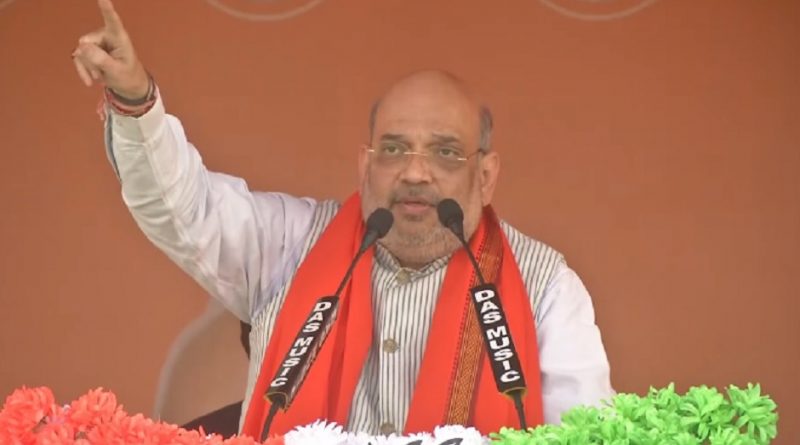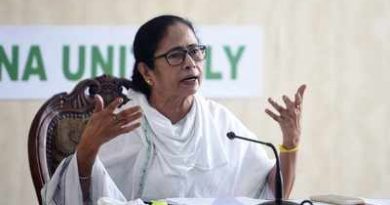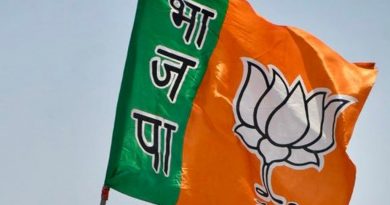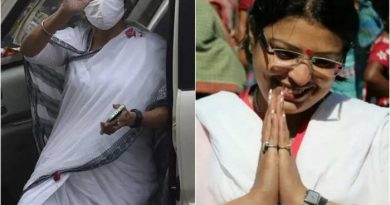| |
|---|
News Desk: Union Home Minister Amit Shah on Monday claimed that “Jai Shri Ram” was not a political or religious slogan, but one used by people of West Bengal fighting against injustice. In an interview, Shah linked major poll planks of the Bharatiya Janata Party to the slogan.

“Be it the injustice done to poor farmers, to the victims of cyclone Amphan, to the victims of cyclone Bulbul, to poor fishermen, to those denied citizenship because of CAA [Citizenship Amendment Act] not getting implemented, or to someone who has lost out on employment because of infiltrators,” the home minister said.
The slogan, which hails the Hindu deity Ram, has become one of the talking points of the West Bengal Assembly elections where the main players are the Trinamool Congress and the BJP. The difference between the two parties reached a flash point when supporters of the BJP shouted the slogan at an event to mark the 125th birth anniversary of Subhash Chandra Bose in Kolkata in January. Prime Minister Narendra Modi and West Bengal Chief Minister Mamata Banerjee were both present at the event, and the latter refused to speak suggesting she felt insulted because of the alleged heckling.
On Monday, however, the home minister said that the slogan was created by the people of West Bengal and not the BJP.
He also accused West Bengal’s intelligentsia of running a “propaganda” to portray the BJP as a party practicing polarisation, and said that the narrative will not work.
“The BJP has governments in 17 states…There have been no riots anywhere, no polarisation, nothing happened,” Shah claimed. “Narendra Modi ji gave electricity to almost the entire country, in everyone’s house. There was no Hindu-Muslim then. Narendra Modi ji gave the poor the Pradhan Mantri Ayushman Bharat card; there was no Hindu-Muslim. He gave the farmers Rs 6,000 each.”
With three more rounds of polling left in the eight-phase West Bengal elections, Shah reiterated the BJP’s assertion that the party will come to power in the state winning more than 200 seats.
The three remaining phases of voting will be held on April 22, 26 and 29, before counting takes place on May 2.




